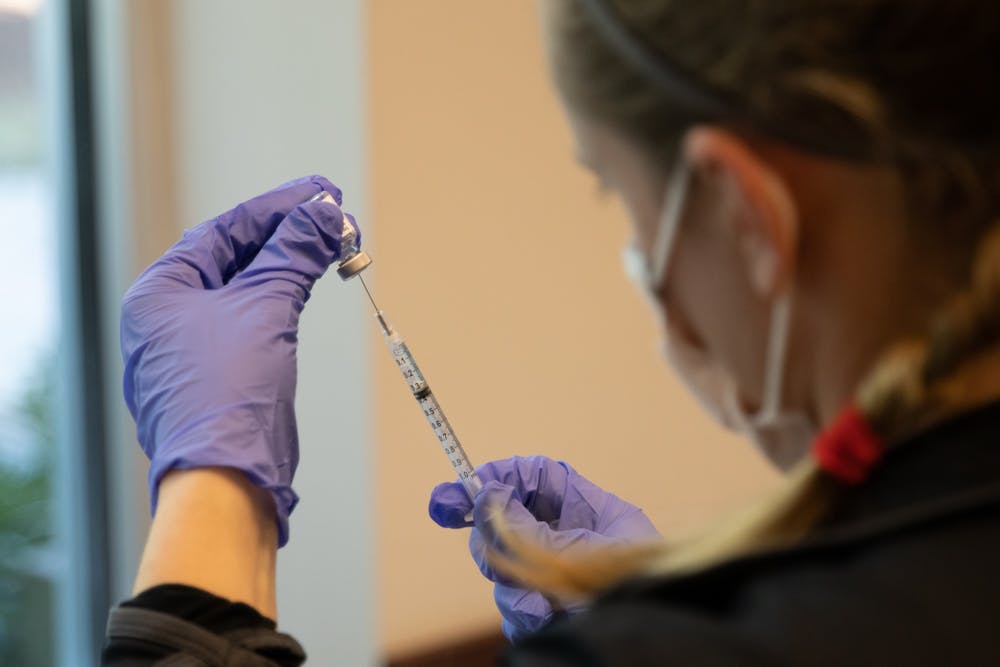In the wake of vaccine development for the treatment of COVID-19, faculty and students from the Gillings School of Global Public Health and UNC School of Medicine have collaborated on testing an antiviral drug for the ability to treat COVID-19.
Scientists have tested this drug, EIDD-2801, on mice, and have found early success in treating and stopping the spread of COVID-19. EIDD-2801, unlike other treatments, is orally administered.
“Remdesivir and monoclonal antibodies can work really well at blocking virus replication," Lisa Gralinski, assistant professor of epidemiology, said. "But you have to use an IV to get it through, so you need to be in a hospital or an infusion center.”
Gralinski said EIDD-2801 is administered in pill form and is taken early in the diagnosis.
Angela Wahl, an assistant professor in the division of infectious diseases, said EIDD-2801 was first invented by researchers at Emory University, who had initially – and successfully — tested it against influenza, SARS, MERS and other coronaviruses.
Wahl said EIDD-2801 works by creating an abundance of errors in the virus genome, which prevents the virus from replicating in a host.
Her work on the drug has mainly been focused on organizing data, participating in the experimental design and other technical work, Wahl said.
Gralinski said drugs like EIDD-2801 should still be effective against new COVID-19 variants observed in South Africa and Britain because it targets the virus’ ability to replicate, unlike current vaccines that are targeting the virus’ spike protein and allowing human cells to develop immunity.
In February 2020 — before UNC switched to all remote learning due to the pandemic — J. Victor Garcia-Martinez, a professor of medicine in the infectious diseases division, contacted Gralinski to use a mouse model in studying the newly emerged SARS COV-2.




